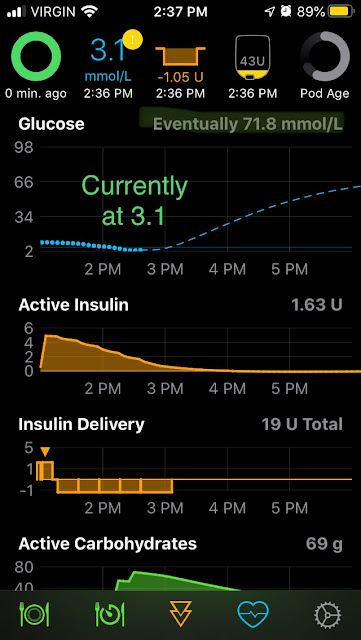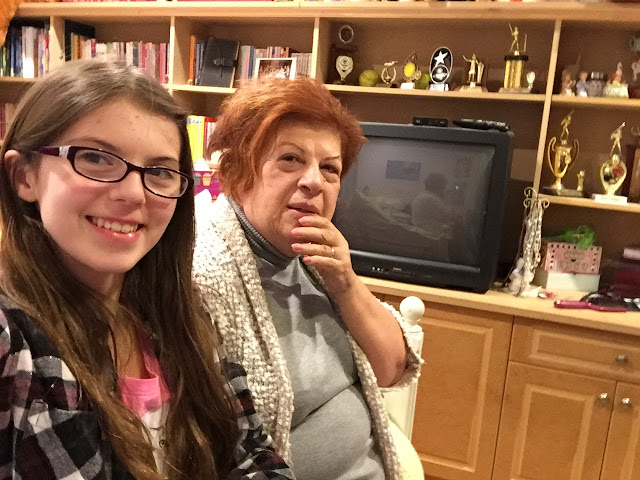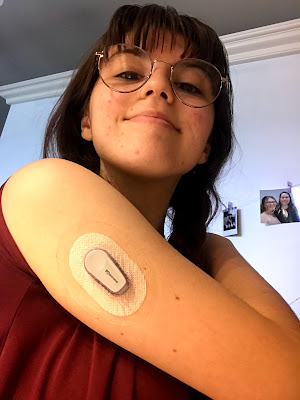Interrelationships
I'm taking Canadian Geography as a course this semester, and as well as the names and locations of thirty major rivers, water bodies, and islands, and the names of all the provinces and territories, another thing we're learning about is the concepts of geographic thinking. This week we are focusing on interrelationships (how one thing can have an effect on another thing basically). Things like how the movements of tectonic plates cause earthquakes and tsunamis and other natural disasters that cause destruction. How things are connected and how everything has an affect.
"Now, Anne, you brilliantly beautiful Potterhead, why are you talking about geography class in your diabetes blog?" Well, my brilliantly beautiful readers, I am talking about geography and interrelationships because my A1C is tomorrow. I had actually completely forgotten about it, but my mom reminded me and I naturally began to wonder what my result is going to be. I don't remember what my last A1C was, but I know it was a decrease from where I had been previously, which was good. I started to think about how my numbers have been recently, how small fluctuations could affect my A1C, and what has been causing these fluctuations. I was looking for interrelationships.
Once I came to the realization that I was using class concepts in my everyday life, I quickly shook myself out of whatever voodoo trance I was in and came to my senses (I prefer to leave school within school hours and not think about it while doing other, more enjoyable things. Like, I try to use correct grammar in texts and for writing things for school, but I don't pay attention to my grammar when I'm just talking to my family. Looking for interrelationships is strictly a Geography Thing, to use it in my everyday life goes against my code as a self-respecting teenager).
But before I stopped thinking about interrelationships, I realized just how many factors go into blood sugar levels. Darn Mrs. G, teaching me effective concepts that will benefit me in my day-to-day, ultimately better my quality of life, and improve my critical thinking skills! But anyway, I guess I've always known that there are hundreds of things that go into blood sugar levels, like sickness and insulin-on-board and temperature and exercise and hormones and emotions and sleep and stuff like that, but I haven't really stopped to think about it before. With all of those different factors at odds at any given moment, little fluctuations in my numbers make much more sense to me now. Take this situation for example:
The picture above was my loop app as my blood sugar was low. I've been going low a lot in the past few days, not sure why, but that's a separate matter. Point is, I was low, went down to 2.8 mmol/L. I had been feeling hungry before going low, so I had some pizza (my big bro made it for me, many thanks to him), and got my low alarm about halfway through my second slice. We all know what pizza does to blood sugars. It sends you high, but not for a while, so I knew I had to eat something else to avoid death, so I had a chocolate donut. I realized after a few minutes that the pizza I had already eaten was going to slow down the affect of my donut, so I had a dex tab too.
SO. I had forty carbs of pizza, twenty carbs of donut, and four carbs of plain sugar in me. That's a lot to not dose for right away. My loop app was predicting that I would go up to past 70 mmol/L if I didn't dose. Yikes. No problem though, I'll just dose a little and head it off, right? Wrong.
I was already low and going down farther, there was no way I was going to take the nine units of insulin that loop was recommending. So I waited till I was back in range then took four units, because I knew that nine units would only send me low again. I did small corrections for the next few hours and avoided going too high, which was a pretty good success. It's been five or six hours and I think I'm finally slipping back into range now after hovering around 10 mmol/L for a while. Oh, or not, just checked and I've actually gone higher. Let's see if another correction brings me down a bit...
THE MORAL OF THE STORY: if all of those little decisions need to be made to deal with one low on one day, think of the countless little choices that must be made to deal with the hundreds of highs and lows over the course of three months. Some of them work out well, some of them don't, but either way, there are just so many different things that factor into making dosing decisions. So don't beat yourself up if your A1C is a little higher than you had hoped, because you are trying your best and there are a lot of things that you can't control.
I'm going to go to bed now, as I'm pretty tired after a long day, and fatigue is yet ANOTHER thing that affects blood sugar levels! Fingers crossed I end the day at a solid 8 mmol/L, but if I don't, then that's okay, because I've tried my best today and that's all I can do. The most you can ever do is your best, and once you've done that, the rest will figure itself out.
Till next time, Type 1 Warriors!





I didn't actually think about how you'd have to be constantly watching the numbers and trying to shift them in the right direction. You seem to have adjusted very well to it, though. I think you said something like, "Learning to live with it is pretty much the only option. If this is going to be my life, then why not make the most of it?"
ReplyDeleteThanks Liya, yeah I did say that once. Thanks for your support! :)
DeleteAnne - this is such an eye opener..but at the end of the day..you have the ultimate control of what goes in your body..thank goodness that you have the knowledge, experience and attitude to tackle each challenge head on
ReplyDelete